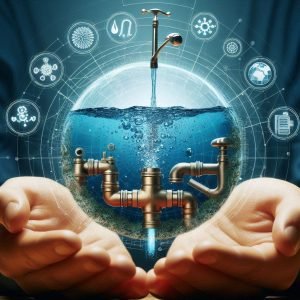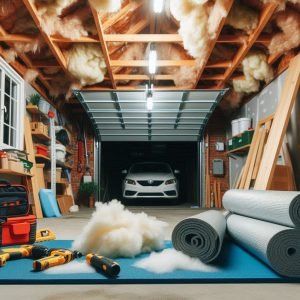Professional plumbing solutions play a vital role in optimizing residential water efficiency systems. Understanding when and how to implement water-saving measures requires careful consideration of multiple factors, including current water consumption patterns, existing infrastructure conditions, and operational requirements. For homeowners managing water systems, recognizing the optimal timing for efficiency upgrades can significantly impact both utility costs and environmental sustainability.
This understanding becomes particularly essential when dealing with comprehensive plumbing systems in residential properties where inefficient water usage could have serious financial and environmental consequences.
When Should You Consider Water Efficiency Upgrades?
The timing of water efficiency improvements involves complex considerations that extend beyond simple cost savings. Professional plumbing standards require systematic evaluation of existing systems to maintain optimal performance levels. Industry experts recognize that delayed upgrades waste resources, while proactive improvements can enhance property value and reduce operational costs.
Whether it’s in single-family homes or multi-unit buildings, water efficiency systems are designed to optimize consumption and prevent waste. Water scarcity affects millions worldwide. Conserving water not only helps the environment but also lowers utility bills. A professional plumber Massapequa NY, can assess your home’s plumbing system and implement efficient solutions. Improving water efficiency in your home keeps your plumbing system in good working order and helps the environment at the same time.

What are the Signs Your Home Needs Water Efficiency Improvements?
Recognizing the signs of inefficient water systems is essential for deciding when to implement upgrades. Here are key indicators that it’s time to consider professional intervention:
Elevated Water Consumption
One of the most apparent signs of inefficient systems is consistently high water usage. Even minor leaks can result in substantial waste over time. These issues often stem from outdated fixtures or deteriorating infrastructure. While basic maintenance may provide temporary improvements, comprehensive system upgrades offer the most effective long-term solution.

Inconsistent Water Pressure
Systems experiencing irregular pressure fluctuations may no longer operate at optimal efficiency. This can occur due to infrastructure age or improper system design. Pressure inconsistencies strain plumbing components, increasing the risk of failures. In such cases, professional assessment and potential upgrades become necessary to restore system functionality.
Aging Infrastructure
Exposure to continuous use and environmental factors can cause plumbing systems to deteriorate. While visible wear alone may not immediately indicate inefficiency, it often signals that system components have been compromised. If plumbing shows significant aging, it should be evaluated for potential efficiency improvements.
How a Plumber Can Improve Water Efficiency in Your Home
A plumber can enhance your home’s water efficiency by identifying areas of waste and implementing solutions to reduce consumption. Their skills and tools can help ensure a more sustainable and cost-effective plumbing system. Here are some effective strategies they use:
Fixing Leaks
Leaky faucets, pipes, and toilets waste hundreds of gallons of water monthly. A plumber can identify and fix hidden leaks in walls, under foundations, and other hard-to-reach areas, saving you water and money on your bill. Their expertise and tools prevent minor issues from becoming major problems.
A simple fix for a leaky faucet or toilet can save you up to 10% on your water bill, according to the Environmental Protection Agency (EPA). So, if you suspect you leak, it’s worth calling in a professional to check it out.
Installing Water-Saving Fixtures
Plumbers can boost water efficiency by installing low-flow fixtures. These modern fixtures reduce water usage without sacrificing performance. Examples include:
- Low-flow showerheads (up to 50% less water)
- Dual-flush toilets (thousands of gallons saved annually)
- Water-efficient faucets (reduced flow, unchanged functionality)
Upgrading to these fixtures significantly cuts water consumption without impacting daily routines, making them a simple and effective way to conserve water.
Replacing Old Appliances with Efficient Models
Outdated appliances waste water and energy, but a plumber can help upgrade to efficient models. Energy Star-certified dishwashers, for instance, save up to 5,000 gallons of water annually, while water-efficient washing machines use significantly less water per load without sacrificing cleaning performance.

By replacing old appliances with new ones, a plumber can ensure optimal installation, reducing water waste, energy costs, and utility bills, ultimately benefiting both your wallet and the environment.
Retrofitting Your Plumbing System
Older homes often have inefficient plumbing systems, wasting water through outdated piping and fixtures. A professional plumber can retrofit your system for efficiency without a full overhaul. Retrofits include:
- Re-piping to prevent leaks
- Adding pressure regulators
- Upgrading pipes to durable materials
These updates save water, reduce strain, and optimize plumbing performance, ensuring efficiency and minimizing waste over time.
Installing a Smart Irrigation System
A plumber can improve outdoor water efficiency by installing smart irrigation systems. These systems use weather data and soil moisture sensors to optimize watering, preventing overwatering. They adjust based on your garden’s needs, ensuring the perfect amount of water. Upgrading cuts down on water waste and maintains a lush yard.
Smart irrigation systems replace outdated, wasteful systems that run during rain or overwater plants, saving water and beautifying your landscape.
Offering Expert Advice on Water Conservation
Sometimes, improving water efficiency is as simple as making a few changes to your daily habits. A plumber can offer valuable advice on how to reduce water use in your home. For example, they might suggest:
- Turning off the tap while brushing your teeth or washing dishes
- Running full loads in your dishwasher and washing machine
- Taking shorter showers
By following these simple tips and making small adjustments to your routine, you can improve water efficiency without investing in major plumbing changes.
What are the Factors That Impact Water Efficiency Systems?
Understanding the elements affecting water efficiency can help predict necessary upgrades. Factors such as:
- Infrastructure Age
- Usage Patterns
- System Design
- Maintenance History
- Environmental Conditions
Assessing these factors enables targeted upgrades, optimizing water efficiency, reducing waste, and ensuring a sustainable, cost-effective plumbing system solution.
Conclusion
Improving water efficiency in your home benefits both your wallet and the environment. From fixing leaks to upgrading fixtures and installing smart irrigation systems, a plumber plays a key role in helping homeowners reduce water consumption.
By making simple changes and investing in efficient appliances and fixtures, you can significantly cut down on water waste and enjoy long-term savings on your utility bills.









